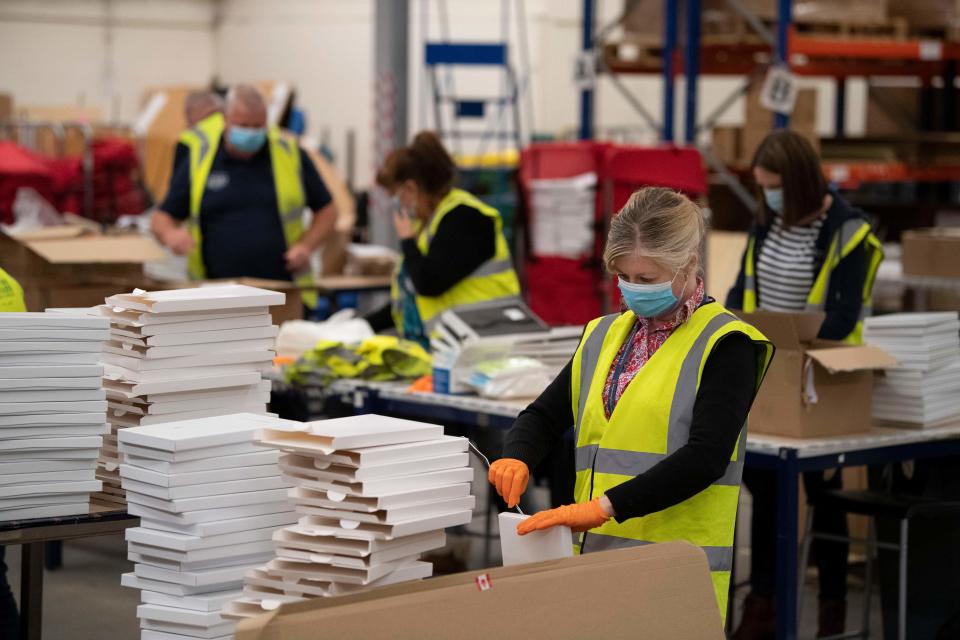Coronavirus: UK manufacturing 'mired in its deepest downturn in recent memory'

The UK manufacturing sector remained “mired in its deepest downturn in recent memory” in May, as the coronavirus crisis continued to dent output, new orders, and employment.
A closely watched survey by IHS Markit found that the sector’s purchasing managers’ index reading came in at 40.7, its seventh-lowest level ever.
The figure, up from a record low of 32.6 in April, indicates that the rate of collapse within the sector is nonetheless slowing.
PMIs are an indicator of private sector activity and are given on a scale of 1 to 100. Anything above 50 signals growth, while anything below means contraction.
“The glass-half-full perspective is one where the rate of contraction has eased considerably since April, meaning — absent a resurgence of infections — the worst of the production downturn may be behind us,” said Rob Dobson, a director at IHS Markit, on Monday.
READ MORE: Eurozone manufacturing recovers slightly but situation still bleak
“Pressure on manufacturers should ease further as lockdown restrictions are loosened, customers return to work and global activity restarts.”
Factories across the country have been forced to close or significantly adjust operating procedures due to the virus, demand has slumped, and supply chains have been disrupted.
The PMI’s output component rose to 35.0, from 16.3 in April, with some firms noting that inflows of new business “showed signs of restarting.”
The easing of lockdowns prompted clients in the UK and elsewhere to begin the process of reopening, IHS Markit said.
Tempering his optimism, Dobson said that changes to working practices, weak demand, coronavirus uncertainty, and Brexit worries suggested that the UK was set for “a drawn-out economic recovery.”
The new normal, he said, will be “one of the toughest recovery environments many manufacturers will ever have to face.”
Employment in the sector fell for the fourth consecutive month in May, at the second-sharpest pace on record, even as business sentiment hit a three-month high.
Vendor lead times — an indication of supply chain health — lengthened to the second-greatest extent in the survey’s history, meaning that the pandemic continues to delay fulfillment of orders in the sector.
Companies also reported that higher costs resulting from these disruptions were only partly offset by supplier discounts and lower oil prices.
READ MORE: Markets rebound despite US unrest as fears ease over China tensions
A raft of data from the sector has shown that it is experiencing an economic shutdown of unprecedented scale.
In April, UK car production fell by almost 100% to the lowest monthly output since World War II.
Just 197 cars were produced in the entire month, an order of magnitude lower than the previous record low from January 1946, when 6,319 units were produced.
The Society of Motor Manufacturers and Traders now expects the sector to produce fewer than one million vehicles in 2020, the lowest output for the sector in recent memory.
“Uncertainty remains the watchword for the months ahead,” said Duncan Brock, the group director at the Chartered Institute of Procurement & Supply, on Monday.
Watch the latest videos from Yahoo Finance UK

 Yahoo Finance
Yahoo Finance 
